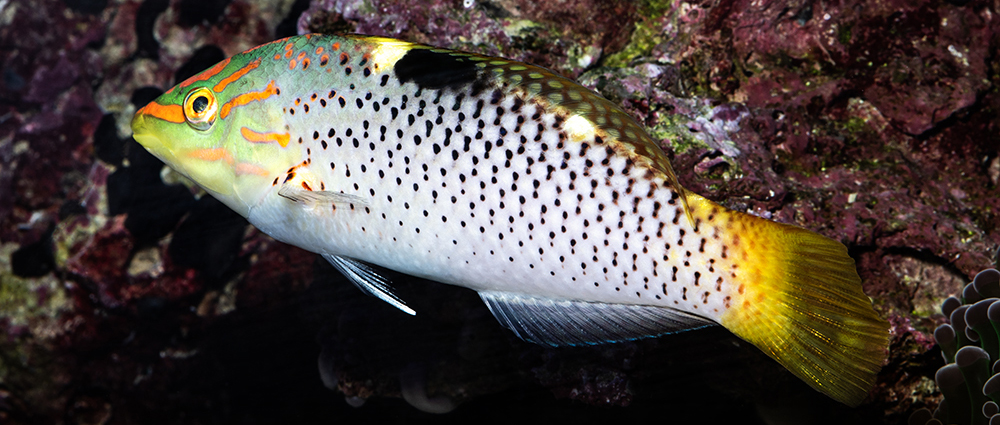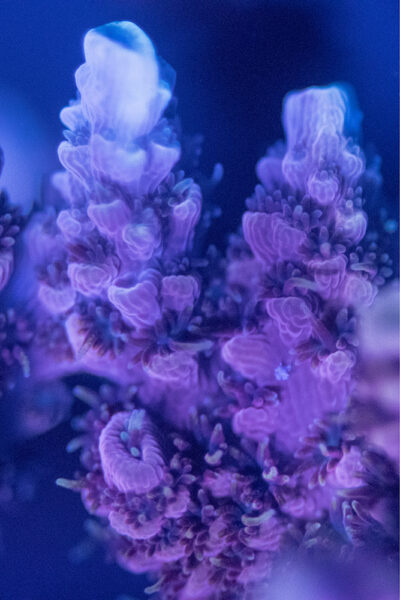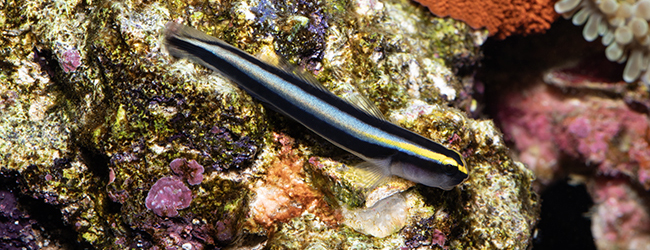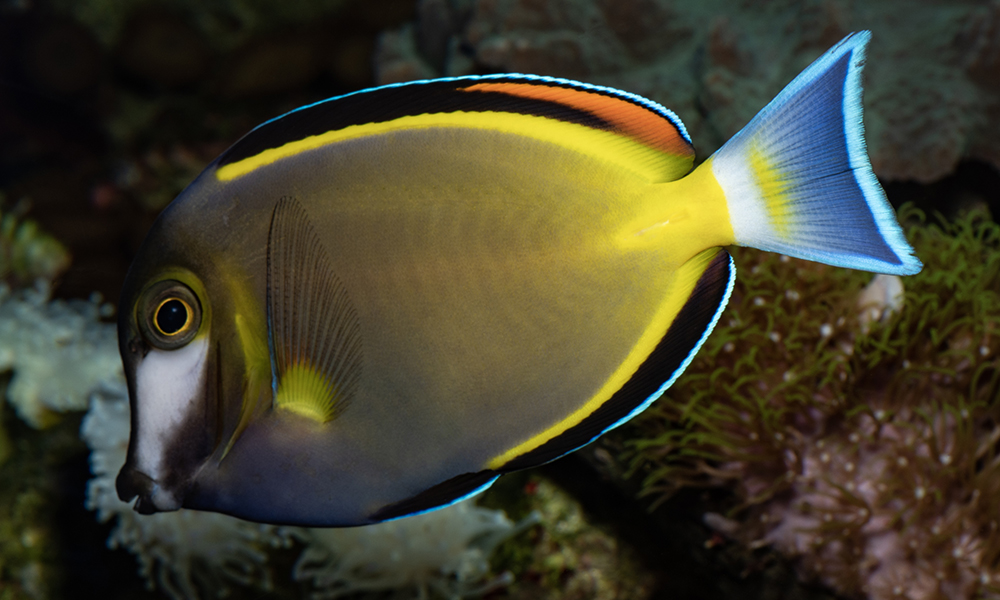
Under the guise of “Saving Nemo,” Radical Activists Push Legislation to Eliminate the Aquarium Trade and Hobby
This article is courtesy of the National Animal Interest Alliance – NAIA
article and images by Art Parola
Radical activists opposed to keeping aquariums are pushing legislation that would end importing and fishing for aquarium fish. Dubbed the Saving NEMO Act, HR 6447 purports to prevent imports or collection of marine aquarium organisms that are collected or raised using destructive practices or species that have poor survival rates in captivity. However, the bill, introduced by Congressman Ed Case of Hawaii and pushed by the same activists that shut down the Hawaii aquarium fishery, creates impossible to meet legal requirements for fishers, exporters, aquaculture and mariculture facilities, and importers. These unreachable standards are not a well-meaning yet short-sighted attempt to raise standards of care for animals or protect the environment. This legislation will, by design, block the import of wild-sourced, aquacultured, and maricultured species, and shut down aquarium fishing – effectively ending the marine aquarium trade and hobby in the United States.

Upon passage of the bill, all imports, exports, and collection of stony corals, seahorses, and giant clams, whether from aquaculture, mariculture, or wild sources, would be banned with all other marine aquarium organisms being subject to ban following petition and litigation from activist organizations. In short order, almost all marine aquarium organisms would eventually be banned from import, export, and collection.
The bill uses vague and overbroad terms to ensure almost every species of fish, coral, and invertebrate will be prevented from entering the aquarium trade and hobby. For example, the bill bans the import of any species that has poor survival rates in transport or captivity. However, this is ambiguous language with no definition. This language also fails to account for the fact that some species require research and innovation to facilitate their successful husbandry. Many species once believed to be impossible to maintain in captivity are now widely kept and cultured, even by beginner hobbyists. Acropora and Goniopora corals are now successfully kept by numerous hobbyists, yet these corals were considered almost impossible to keep until relatively recently.
Importing fish obtained through Illegal fishing methods is already prohibited under the Lacey Act. CITES regulates international trade for species for which trade needs to be monitored and regulated in order to ensure it does not cause a detriment to wild populations. The Endangered Species Act adds further prohibitions and regulation for species native to the United States as well as foreign species. Collection of aquarium fish in the United States is managed by respective states’ fish and wildlife agencies as well as by federal regulations. In other words, the issues HR 6447 purportedly addresses are already regulated through a myriad of state, federal, and international laws, and law enforcement already has the necessary tools to prosecute anyone who engages in the actions this bill describes! However, as already stated, the goal of the bill is not to make the aquarium trade and hobby more sustainable, but to end even the most sustainable examples, just as the same activist groups pushing this bill have done in Hawaii.
The legislation, if passed, would create a legal framework, that through its hyper-complexity, would shut down virtually all aquarium fish fisheries and overseas aquaculture and mariculture operations supplying aquarium hobbyists in the United States. The resulting loss of marine aquarium inhabitants would also destroy the need for aquariums, filters, heaters, pumps, lights, fish food, and all other equipment and supplies necessary to keep fish. Many aquarium and pet stores and local fish stores would lose vital sources of income and be forced to lay off employees, and many businesses would be forced to close altogether. Small businesses, the lifeblood of the aquarium trade and hobby, would be hit the hardest.

The Saving NEMO Act is not about science or conservation. If it was, the proponents of this bill would encourage, support, and promote fisheries management, net training, access and benefits sharing, and the myriad other conservation and sustainable development efforts that would create a more sustainable marine aquarium trade and hobby. Instead, the proponents of this legislation have shuttered one of the most sustainable nearshore fisheries in the world and have stated the goal of eliminating aquarium fisheries worldwide. In addition, these activists oppose aquaculture, which they smear as “factory farming of fishes.”
The truth of the matter is the activists promoting the bill wish to end what they see as the “evil” of keeping fish and other animals in aquariums. While the language feigns fair procedures and exemptions that would allow for take, import, and export of sustainably harvested and cultured species, similar legislation and regulatory schemes have shown these to be sham provisions, included simply to lessen opposition to the bill. In practice, the complex regulation included therein will create insurmountable standards with essentially limitless opportunities for obstruction with endless litigation funded largely by taxpayer dollars. Tens of thousands of jobs will be lost around the world. Countless people in developing countries who currently work in sustainable aquarium fishing, aquaculture and mariculture jobs will be forced to find employment in less sustainable industries such as mining and food fishing using destructive methods.
You can help by contacting your Congressional representative. Tell them to protect the educational benefits, livelihoods, sustainable development initiatives, and coral reef conservation provided by the aquarium trade in the United States and abroad and to OPPOSE HR 6447. To contact your US representative, please visit the NAIATrust.org website, sign up here, find your representative here, and drop them a short note stating your position on this bill.

###





A lot of unsubstantiated fearmongering in this article. I’m disappointed Coral Magazine would publish something like this.
It immediately calls out radical activists without actually stating who these radical activists are. Is there an actual group pushing for this, or just and imaginary boogeyman?
There is also a comment about this article on R2R with a section of the bill that explains how the second paragraph is a lie. There are exceptions that allow aquaculture and mariculture to continue being imported.
Thanks for the feedback! I should first point out that this is a third-party article from NAIA, which we republished as the news that it is.
Regarding the activists in question, there are many groups who were behind the efforts to shutter Hawaii’s marine aquarium fishery, including For The Fishes, for example, as reported in past CORAL coverage. Parola draws the connection between these same groups and Hawaii Representative Ed Case as being the party responsible for introducing this bill. This is not an “imaginary boogeyman”.
When reviewing earlier versions of this article internally, I actually had an argument with a fellow staff member over whether these proposals will allow for aquaculture. Maybe they do, maybe they don’t. And if they do, it could well be that it’s not in a form that we are currently familiar with. E.g., it may allow the aquaculture of corals by academia for research and coral restoration efforts, while prohibiting it for private home aquarium keeping. I won’t get into all the intricacies and realities of today’s aquarium trade and why it’s wrong to presume that we can have the same hobby we enjoy if we rely solely on aquaculture.
What I see in this bill is a lot of very vague wording and broad statements that make it incredibly easy to run afoul of things. I believe that is by design. Even if a broad interpretation allows for commercial aquaculture, there might be five other ways in which this bill prevents anyone from actually being able to legally sell what they produce, or to ship it…etc…. Ultimately, I do side with Parola in his opinion that this law is ultimately meant to kill the marine aquarium hobby and trade.
As far as fear-mongering is concerned? Perhaps you’re not familiar with the history of Hawaii’s embattled marine aquarium fishery. For simplicity sake, let’s talk about conceding to a whitelist first, then constantly battling against misinformation and lies with data and science, year after year, probably for a decade plus at this point, only for a group to find a legal loophole through the courts that held the marine aquarium fishery to a standard that no other fishery in the state is obligated to meet (but arguably should be, because whether a fish is harvested with a net, a hook and line, or a speargun, and whether the fish is destined for an aquarium or the dinner plate, the effect of removing the fish from the reef is exactly the same). And now, even with a fully approved Environmental Impact Assessment, where is Hawaii’s fishery now?
So no, whether this law is “the law” that makes it or not, I cannot discount this situation as fear mongering. The efforts to curtail or eliminate the aquarium trade and hobby have taken many forms over the years, and some have worked. To ignore these proposals, even if you think they can’t happen, is to put your hobby at risk.
That’s my take on this – Matt Pedersen
Speaking as a professional conservationist working in the United States. And after reading the specific language in HR 6447. The language used is far too vague, and on its own, leads to confusion and fear mongering. That fault rests with Congress.
I did not just read a conservation law when I read the Nemo Act. I read what could easily act as a broad ban. That is the issue.
If Congress does not want a knee jerk reaction, they should do more groundwork. They should draft a more specific proposal that clearly delineates protecting North American stony coral (which are already heavily protected) rather than seek to target any marine animal globally. Which is how portions of the CR read. While also doing their due diligence that looks at sustainable practices:
Sustainability by definition includes and considers three things, always: environmental, economic, and social. 6447 only addresses the environmental considerations, at the detriment of both the economic and societal impacts of the law. Meaning this law made no effort to address sustainability.
Speaking as a conservationist. Supporting Aquaculture that lowers the impacts to wild reefs while still allowing public access to marine organisms is a positive effort. Supporting Mariculture likewise is a very positive boon to reef conservation, public access, and supporting the financial prospects of population that live near and work with those reefs. And there is very little reason to limit any organism tank-spawned and raised, which had almost no impact on the wild reef save the breeding stock. Those are carve out that should be highlighted in the text of the law.
It is very easy to see the need to limit collection of endangered species. I am not advocating for damage to the reef ecosystems, nor harm to the species which live there. Specific species which are wild collected may very well need a permit process to collect. But those same protection laws need to account for the people, business, livelihoods of those who work with these organisms. That is the very goal of regulation. And to ignore that, for the sake of an agenda, causes damage to the legislative process, damages individuals faith in government, and does harm to the public perception of conservation efforts that are necessary and beneficial.
The Nemo Act is not constructive under it’s current language.
Well said Mitchell, thanks for sharing your viewpoint.
If hobbiest don’t speak out then the radical activist spewing lies (per usual) will continue to chip away with falsified science claims to serve a separate agenda.
Hi Matt,
Firstly, please know that it brings me no joy or satisfaction to also voice that I am disappointed to see this particular third-party article published on Coral Magazine and featured prominently in the email newsletter. On this topic, I see Coral Magazine as holding a privileged role as a respected authority with both the opportunity and responsibility to educate their audience on industry developments, where legislative risk is certainly of interest and deserving of coverage. In the future, I earnestly request that the coverage be firmly grounded in quotes from primary sources such as the legislation itself and policy experts able to provide clarification for how the given proposal would function without generalizations. By seeking deeper, more specific insights into the situation at hand, readers, our beloved LFS’s and industry leaders in supplies, captive breeding and wild collection can better articulate the problematic aspects of legislation upon which communications and productive exchange can be focused. As it is, I am concerned that when all legislative news is communicated in an alarmist tone such as this, the aquarium community is at risk of presenting itself as diametrically opposed radical activists who lose our seat at the table. Although the strategy was ultimately not successful in Hawaii, I still believe that it is within the community’s best interest to prove that we are rational, environmentally conscious animal rights proponents capable of communicating the subtleties of our industry needs and compromising when it is right to do so. I maintain that this strategy is essential to ensuring that there is an open channel for critical ongoing work to be heard, such as the scientific studies, assessments, disproving of misinformation and industry advocacy that it will take to right previous wrongs, reward aquaculturists and sustainable fisheries and ultimately maintain our hobby and industry. As Coral Magazine’s is a critically positioned thought leader and communicator within the trade, I will continue to follow coverage on legislative topics, but will refrain from subscribing to Mr. Parola’s methodology and patiently await information on how to participate in a more conscientious and productive way.
Best,
RC
Thanks RC, I have lots to say about this, but will again thank you for your comment. Those who are advocating for the entire hobby and trade need to hear what others think about how they”re going about doing it.
I will add that this is probably not the last you will hear from CORAL on this subject, if this proposed legislation remains out there. PIJAC (sorry, Pet Advocacy Network) has said nothing on this matter at this time. MASNA is not in a position to make a statement. I will say that the people who can provide you the type of coverage you want seem unwilling to take the jobs, despite invitations to do so. If I can’t find the people with the skills to cover this in the way it deserves, you are left with me either digging in myself (which I have no time to offer), or nothing. Sharing this and raising awareness is definitely better than nothing.
It is fair to say that the entire industry needs to do better on this front, and for now, this story by Art, written for NAIA, is what we have to share. I will also say, however, that I do believe the alarmed tone of Parola is warranted. As a hobby and industry, we have dodged so many possible “killers”, and the onslaughts do keep coming.
I’ve said it, and I have no problem stating publicly, that I think the aquarium hobby and trade needs it’s own version of USARK. But who will do that? And I’ll put it back to you, RC, is a USARK for the aquarium hobby the type of effort that YOU think is needed, or do you see something different??
I for one actually find some joy in the fact that this got people talking, on both sides. We don’t have to agree….better that this sparked conversation, vs. we all just say nothing!
Thanks for the thoughtful comments, RC!
I find it interesting (concerning) that those who come here critical of Coral Magazine for this publishing this article, and who seem to have quite involved opinions, choose to remain anonymous.
Personally I have a much simpler understanding of the underlying motivation of those who wish to push these pieces of legislation. These individuals simply have a philosophical opposition to humans keeping (once wild) animals as pets. They then use specious conservation arguments to convince willing proxies in government to push their meritless and fact-lacking endeavors.